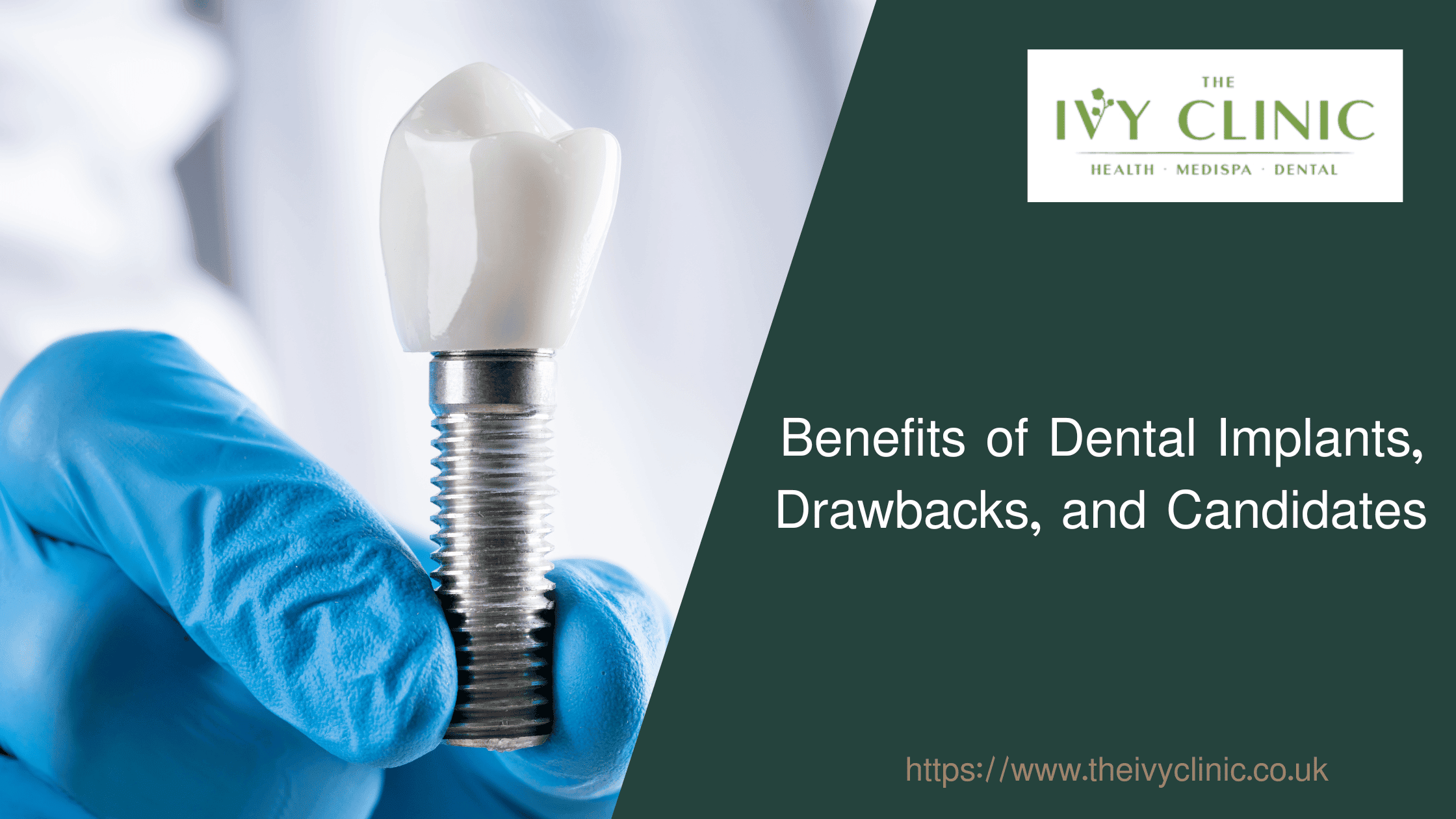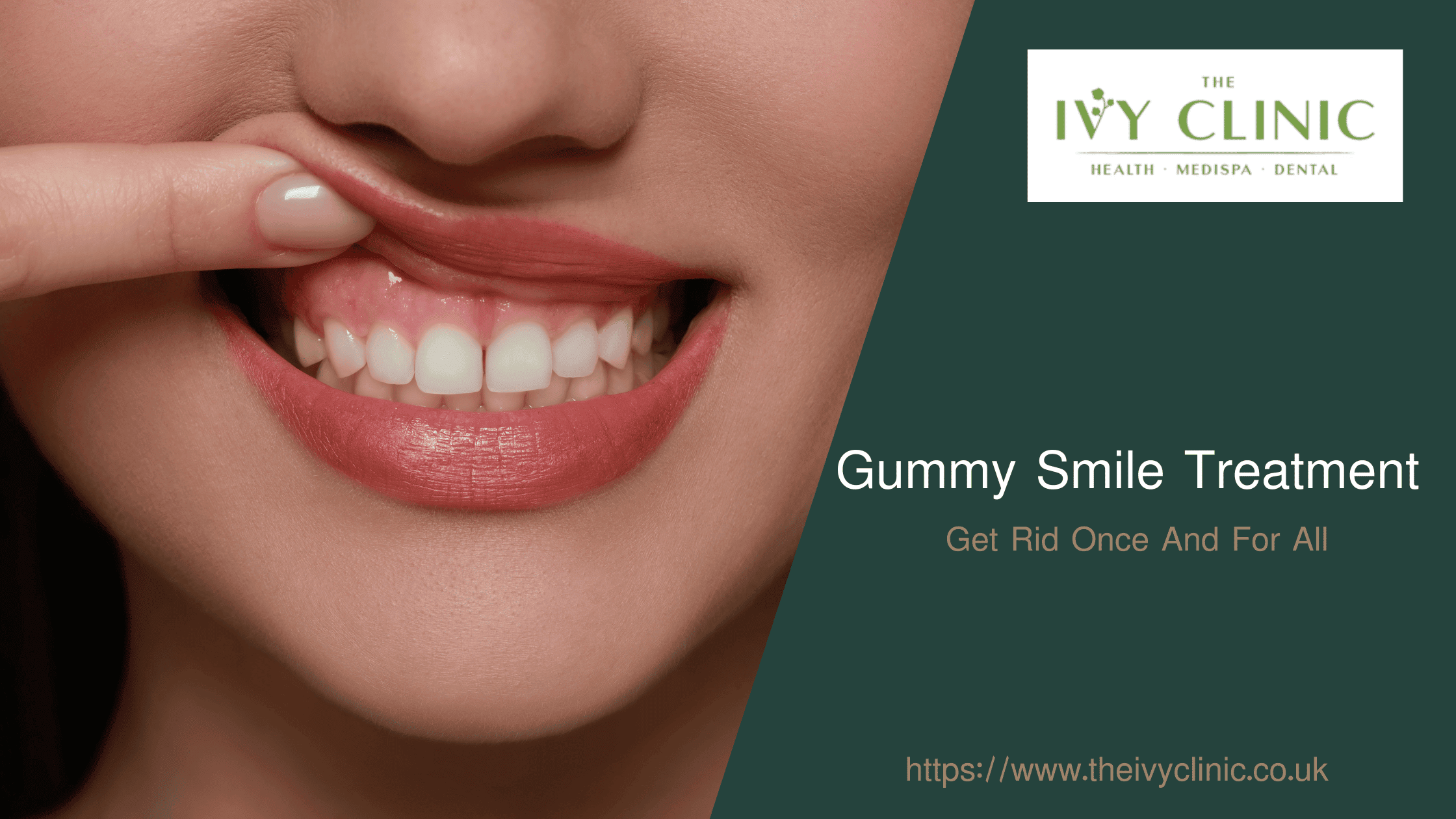
Tooth loss is a growing problem in the UK. According to the Oral Health Foundation, over 75% of British adults have at least one tooth missing. If you also have one or more missing teeth that affect your speech, chewing efficiency and facial aesthetics, dental implants are your best option to replace them.
But what are dental implants and what are their advantages over other tooth replacement options? You may ask! This blog contains everything you need to know about dental implants so that you can make an informed decision about your treatment. So, read till the end to decide whether tooth implants are the right option for you.
What Is A Tooth Implant?
According to the British Society of Oral Surgeons, an implant is a metallic, cylinder-shaped fixture inserted into the jawbone to replace missing teeth. Dental implants serve as replacement tooth roots and provide a solid foundation for the artificial teeth once they get firmly anchored into the jawbone. Since dental implants are inserted into the jawbone like natural teeth, they provide a natural feel and appearance. This is why dental implants have become the most sought-after tooth replacement worldwide.
Who Can Get Dental Implants?
Any individual who has lost one or more teeth is a candidate for dental implants. However, one must not have any underlying medical or dental condition – especially bone-related diseases – which may hamper implant healing. Your dentist will first treat any underlying issues, such as gum disease before they initiate the implant process.
Moreover, one must have sufficient quality and thickness of jawbone available to support the implant firmly. But if that is not the case, there is no need to worry. Your dentist will replenish the deficient bone tissue through a procedure called bone grafting. In this procedure, your dentist will use natural or artificial bone and place it at the implant site to restore optimal bone density.
So, virtually everyone with missing teeth is a candidate for dental implants.
How Many Teeth Can One Implant Replace?
Whether you have lost a single, multiple, or all teeth, you can get them replaced with dental implants. If you have a single missing tooth, your dentist will replace it with a porcelain or zirconia crown. If someone has lost multiple teeth, they will be replaced with implant-supported overdentures. Finally, if someone has lost all their teeth, they will receive a complete fixed bridge supported by 4 implants in each jaw. This process is called an all-on-4 prosthesis and is the most durable and functionally superior among all the tooth replacement options.
Do I Need A Dental Implant After Extraction?
When a tooth is extracted, it should be replaced without delay. This is because even a single missing tooth can significantly affect one’s ability to chew and digest food optimally, besides causing aesthetic issues. More importantly, the neighbouring teeth gradually creep into the vacant space creating spaces among other teeth. Such a situation can create functional and aesthetic complications. Therefore, if a tooth is extracted, it should be replaced with a suitable option as soon as the surgical site heals.
How Long After An Extraction Can I Get A Tooth Implant?
Traditionally, dentists wait for about 10 weeks before they insert an implant into the extraction site. This is to ensure that the dental surgery site heals optimally and that good-quality bone forms around the implant. However, in some cases, dentists may insert an implant immediately after extraction. This procedure is called immediate implant placement.
Once the implant has been inserted into the jawbone, your dentist will wait for about 4 – 6 months to promote healthy bone formation around it, before placing a suitable prosthesis over it. This ensures that the implant becomes firmly anchored into the jawbone and provides support to its attached prosthesis.
Does Getting A Dental Implant Hurt?
Dental implant placement is a surgical procedure. Therefore, to make sure that you remain pain-free, your dentist will administer local anaesthesia. when multiple implants have to be placed in a single sitting, your dentist may consider performing the dental implant procedure under conscious sedation or general anaesthesia. So, don’t worry; you won’t feel any pain during your implant surgery.
Are There Any Long-Term Problems With Dental Implants?
When placed by a competent and experienced dentist, dental implants don’t have many major drawbacks or complications. However, if optimal cross-infection control is not followed during the procedure it can lead to a condition called peri-implantitis, which may even result in implant failure. Another rare, long-term problem with dental implants is their loosening due to infection or overloading.
How Successful Are Dental Implants?
Dental implants are by far the most durable and aesthetically pleasing tooth replacement option available. According to the American Academy of Implant Dentistry, tooth implants have a success rate of over 95%. Similarly, research shows that the 10-year survival rate of dental implants is greater than 90%. This means that more than 90% of dental implants will last longer than a decade if they are looked after properly.
Can Dental Implants Be Used To Replace Loose Teeth?
Not all loose teeth need to be replaced. Your dentist will first identify the underlying cause of the problem. For example, if a tooth is loose because of periodontal disease, they will perform professional teeth cleaning to restore optimal periodontal health. As a result, the tooth will anchor itself again in the socket.
On the other hand, if the tooth is loose due to an irreversible issue, your dentist will extract it and replace it with an implant-supported prosthesis.
Are Dental Implant Teeth Permanent?
Dental implants are considered a long-term solution for missing teeth. With proper oral hygiene and dietary care, you can expect your implants to last more than a decade. So, dental implants are the next best thing to one’s natural teeth.
If you’re interested in replacing your missing teeth with dental implants in Teddington, you should consider the Ivy Clinic. We take pride in having state-of-the-art equipment and a team of highly experienced dentists to ensure that you get the most out of your implant treatment. So, contact us to book an appointment



